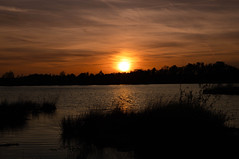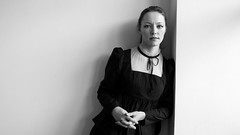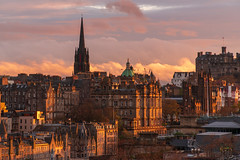This last Sunday was the final day of Sabeel’s 6th annual young adult conference. For 12 days, my fellow Sabeel staff members and I facilitated an introduction to Palestine and Israel for 45 young Christians from South Africa, the Netherlands, France, Great Britain, Sweden, Norway, Puerto Rico, the United States, Canada, Palestine, and Israel. As a leader, activist, and the conference chaplain, it was a fascinating and challenging experience the whole way through. The conference attempted to bring to light many of the faces of occupation while also focusing on the particular situation of the Palestinian Christian community. By the end of the 12 days, I was tired– physically, emotionally, and spiritually exhausted–and simultaneously more heartbroken and more in love with this land and its people than ever.
At least twice a day during the conference, the bus would stop at a corner store, and we staff members would jump out to purchase a dozen cases of bottled water, ripping them open and passing them down the aisles to the participants. This was partially just to keep them hydrated in the midst of the hot Middle Eastern summer and partially to account for the fact that water in the West Bank is often of questionable quality (I’ve been drinking it all summer with no problem, but we didn’t want a bus full of sick people). Securing water was a daily task…a task that didn’t end when the twelve days were over.
Following the last day of the conference last Sunday, I came to Bethlehem to spend a few days with Linnea, a longterm volunteer at Sabeel from Sweden, and a few of her Swedish friends who had participated in the conference. Linnea lives in Bethlehem; her apartment is about a 15 minute walk from downtown Bethlehem and Manger Square. At the beginning of the conference, I remember Linnea saying that the water was running out in her building and she didn’t know if she would have any after the conference ended. When we arrived at her place, we tested the faucets; a trickle of water came out…for about five minutes, and then it was gone. In anticipation of this, we had purchased a case of drinking water and carried it with us, but we didn’t have any for cooking, showers, washing clothes, or flushing the toilet. Now, we’re a flexible bunch, but we were in serious need of showers after a couple of days, so we went to a Swedish Christian volunteer house in another part of the city to use the showers. Three of us managed to take very brief showers before the water ran out there as well.
Although it’s inconvenient to live without running water, we view our situation in relation to our Palestinian neighbors to keep things in perspective. Linnea’s building has been without sufficient water all summer but only completely without water for about a week. The refugee camp across the street from Linnea’s place has been without water for 40 days. 40 days. The old city of Bethlehem just got water again a few days ago after being without for 45 days. There’s no doubt that there is a water crisis in Israel and Palestine as a whole…but the crazy thing is that the Israeli settlement with a population of over 30,000 people that sits on the hill facing Linnea’s apartment has water 24/7. No interruptions, no water rations. The settlers have swimming pools and fountains in a thoroughly western-style city and, yet, just a kilometer or two away, the refugees haven’t been able to flush their toilets for over a month.
It’s true that there is a water shortage in this land…but you wouldn’t know it from within the Israeli cities. Israeli citizens have not been asked to cut down on their water usage; they have not even been asked to avoid watering their lawns in the heat of the day. What’s more is that, when Palestinians are able to get water, they are charged 6 shekels (nearly 2 dollars) per unit while Israelis are charged 1/2 shekel per unit. The route of the separation wall that I wrote about recently has been used to annex and/or control nearly all of the major Palestinian water resources. The Applied Research Institute of Jerusalem reports that the route of the wall has already annexed 29 major Palestinian wells and 32 Palestinian springs. In addition, Palestinians must request a permit to drill for water. These requests are hardly ever approved and, when they are, Palestinians are permitted to drill only 1/10 as deep as Israeli settlers on the same land. Palestine is not a third world country. It is a fully developed society that is not allowed to access its own natural resources. And someone–a human being–is making a conscious choice to deny water to other human beings. Every day.
Yesterday, my Swedish friend Gustaf and I were waiting in line at the main checkpoint from Bethlehem to Jerusalem. The border guards were giving a Vatican nun a hard time about her passport for nearly a half hour, so we had a good long time to look around. At one point, Gustaf stopped walking and pointed at the ground. I looked to where he was pointing and we both just stood there, dumbfounded. A water hose had broken loose from something and water was freely flowing across the checkpoint line and into a gutter. Puddled on the pathway alone was more water than the five of us had used in three days.
The prophet Amos declared, “Let justice roll down like waters and righteousness like and ever-flowing stream “(5:24). As I turn toward my last days here and reflect all I have seen and heard and felt, I see a land and a people for whom justice is a slow trickle from a kitchen sink in Bethlehem that is drying up far too quickly.
What will happen when even that trickle is gone?






Thank you again Staci for your poetic and powerful writing. As I read this one I kept seeing alternating images: first of stately and beautifully manicured mansions high up on the hill in Piedmont; that followed quickly by my remembrance of having seen a little girl, maybe 6 or 8 years old, standing all alone in tattered clothing begging for food amidst the grim landscape of trash and decay on the corner of MacArthur Blvd and 82nd Ave in Oakland. Yes, the “bond” between Israel and the U.S. surely is strong.
Staci, what a powerful post. Thank you for sharing all of this. Will you be presenting your experience when you get back to PSR?